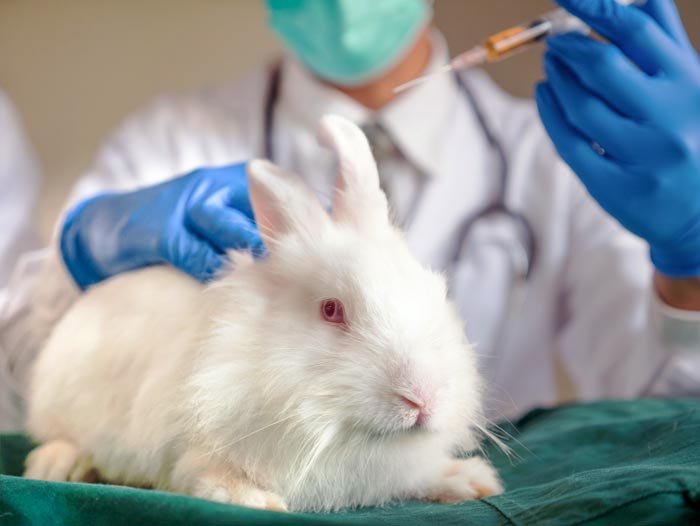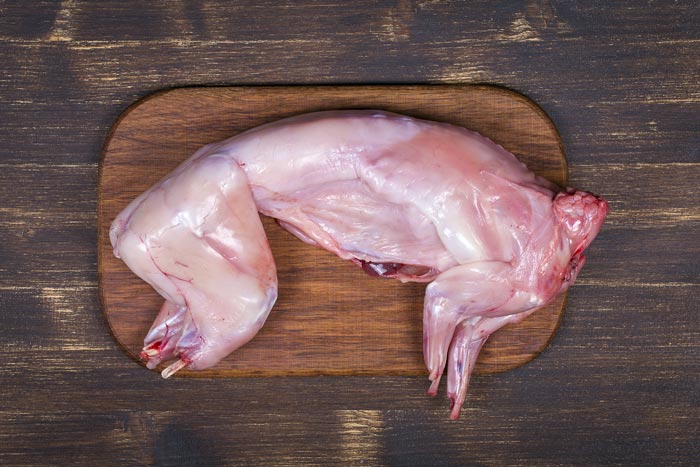I’ve written about one particular coincidence before on this blog. It’s not much of an anecdote, but it stuck with me because, in many ways, it gets to the root of one of the peculiar hypocrisies that pepper our relationship with animals.
I had just finished my consultation with a long-standing feline patient – a discussion about the cat’s bowel problems, lingering particularly on nutrition. The cat had been eating a rabbit and chicken-based diet.
I clicked open my next consultation on the waiting list – a rabbit. It was a tiny coincidence, and I didn’t think much about it, until I’d finished and opened my next consultation.
A chicken.
Okay, as I said, it’s not an after-dinner story to rival Peter Ustinov’s, but it does highlight something that has always confused me, and my confusion about this (as with most other things) has only increased with age.
Why are some animals more equal than others?
Why do we treat some animals as pets – afforded the luxuries of the love and care of an attending human, food and board for life (and I’m aware that being owned as a pet isn’t always Easy Street, but, for the purposes of the discussion, let’s assume your average caring and attentive owner) – some as food production animals, some as vermin, and some as tools of research and drug/chemical testing, even when these animals are the same species?
I’m going to start this discussion with humans… bear with me, because I hope it’s going to make the point I’m trying to make easier.
I think it may help to understand my opinion of humanity’s place in the natural world, so here’s my take: humans are not special. By this I mean I believe humans evolved through a process of natural selection and are closely related to all other life on Earth – they have no moral superiority, no “I’m a human, get me out of here” card that affords them special treatment. If you have to make a decision between something happening to a human or, say, a rat, I believe basing that decision on the sole fact one is a rat and one is a human is, morally, a challenging position to defend.
Obvious differences

However, there are obvious ways in which humans are different from other animals, just as other ways in which cheetahs are. Or slugs. Or whales.
With humans, the most obvious difference is our smarts – we are really very brainy indeed, to the point where we have to pop out of the womb barely finished so our heads can fit out the hole. This isn’t the difference I want to highlight, though – I don’t think intelligence gives you any moral right to special treatment, and it’s far from proven it’s a useful long-term survival trait for a species.
The main difference between humans and most other animals I want to focus on is this: our capacity for suffering.
When I’m thinking about animal welfare, this is the question I am most interested in – as Jeremy Bentham said: “The question is not, can they reason? nor, can they talk? but, can they suffer?”
How we suffer
Those big brains of ours come at a price – not many creatures can worry like a human. For a human, a diagnosis of cancer comes with the complete understanding (even if it is accompanied by denial) of what the future is likely to hold, unlike the day-to-day carefree living of many other species.
Humans have a capacity to suffer beyond that of many other creatures, which brings me (via long-winded pontification) back to this: in this single way, relevant to this blog, humans are exceptional.
The capacity for suffering varies between the species, with humans at or near the top, and I think (although I’m far from comfortable with this) you could use this as some justification for the use of animals in medical research.
What are we worth?
The suffering of a single human diagnosed with a terminal disease is likely to outweigh the suffering of a single rat used in medical research. Maybe two rats. Maybe three… it starts to get complicated from here for me, which is why I’m still unhappy with the whole idea (how many rats? 10? 20? Every rat that ever lived? What about if the research doesn’t lead directly to a cure, but might help one unspecified day in the future? What if it’s your daughter that’s terminally ill?), but it’s not really what I want to talk about, except to say I feel the use of animals in the testing of cosmetics is utterly morally reprehensible.
Let’s move a few rungs down the capacity for suffering ladder, because this is where I start to experience a moral crisis. I think it’s an uncontroversial thing to say a carrot has a smaller capacity for suffering than a turtle, and it’s likely an aphid can suffer less than a fox. But what about a crab and a lobster? What about an elephant and a hippo?
What about a cat, a rabbit, and a chicken?
Rung by rung
There will be differences in all their species in their capacity to suffer – it probably differs for different situations too; a rabbit is likely to suffer more just from being in the presence of a cat than a cat is being in the presence of a rabbit – but it seems likely they are at least close to each other on the suffering ladder, if not quite on the same rung.
How then, is it morally justifiable for us to cause one of these species to suffer in the name of the other? There’s a (tenuous) argument to be made for farming animals for human consumption, but how can we justify farming rabbits for cats? Why is it okay for rabbits to suffer (however minimised that suffering is) for cats?
I’m aware cats are obligate carnivores, but that’s hardly the rabbits’ fault. Why is one of these species treated as a pet, to be afforded every luxury possible, and the other treated as a food production animal, when they are nearly equally able to suffer? Is that justifiable? Perhaps the obligate carnivore status of cats helps them here.
Additionally, you could make the argument that food production animals, when kept to the highest standards of welfare, have a quality of life equivalent to that of a pet. In most cases, I’d disagree with you, but I’m willing to concede both points here – let’s give this situation the moral benefit of the doubt.
Moral justification
How about this one: the testing of veterinary medical products on laboratory animals. Is this possible to justify, from a moral perspective? Causing suffering, physical harm and death to creatures in order to produce medicines for other creatures with a similar capacity to suffer.
How about when dogs are used in medical testing for products intended for other dogs? You could use the argument fewer dogs will suffer from the testing than will suffer from the disease – how many dogs experience the awfulness of distemper in the western world now?
However, very little medical products produce such clear-cut health benefits as vaccination does, and I’m not talking about research here, I’m talking about testing products (although we could talk about medical research, too – the arguments are similar – but I do have to finish this blog at some point).
Highly illogical

The needs of the many outweighing the needs of the few (let’s call it the “Wrath of Khan” argument) makes logical sense, but you only need to look at it from a slightly different perspective to show how we are thinking about animals is strange, illogical and hypocritical – imagine testing medical products intended for humans on other humans.
If you’re thinking “that’s okay, they could test on criminals” then:
- You have much more faith in the criminal justice system than I do.
- That doesn’t count, because lab animals did not give consent, and didn’t do anything wrong, they were just born in the wrong place.
The equivalent would be segregating villages of people and everyone born in these villages is used in medical testing. Unthinkable, right? But this is what we do for dogs, rabbits, cats, mice, and many other species.
Uneven classification
Let’s wrap this up. Here’s my point, summarised as best I can: the only thing that matters, to me at least, when making moral decisions about humans and animals, is this question: who suffers? Or, more appropriately, who suffers most? By this line of reasoning, the use of animals to feed, provide medicines, or perform research for other animals that have an exactly equivalent or very similar capacity for suffering, is very hard to justify morally.
Some animals are classified as pets, while some are classified as food production. Some are classified wild and some are classified as research animals, even if they are all the same species with the same ability to feel pain and fear.
Rabbits, for instance, fit easily into every one of these categories – they are treated utterly differently, both practically and legally.
Utopian ideals
Maybe it’s just me. Maybe I am foolish to have a dream of a distant future where our use and abuse of the animal kingdom is looked back on with shocked disbelief. We may like to think we’re logical, but we’re bigoted against the other species in a way so deeply ingrained it’s hard to see it; we treat the world as if humans are greater than all others, and deserve a special place on it.
I do not believe this is the case.
Now, I’m the first to admit we’ve ended up a long way from a minor coincidence in my consulting list, but these are the thoughts that run through my head in such situations – another consequence of those big brains of ours.
Many of you will disagree, most likely.

Leave a Reply